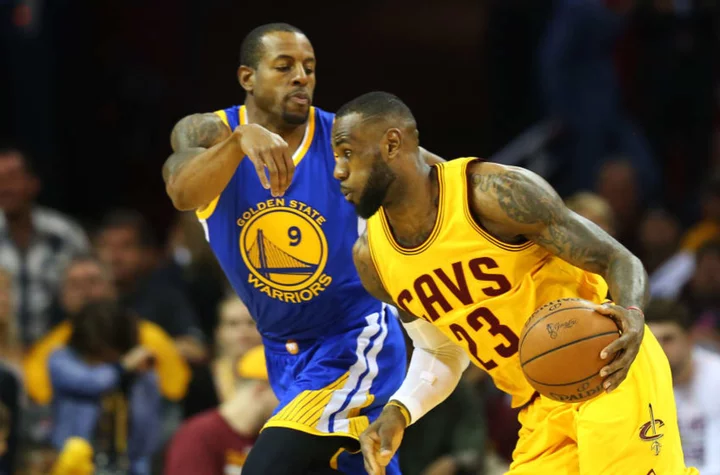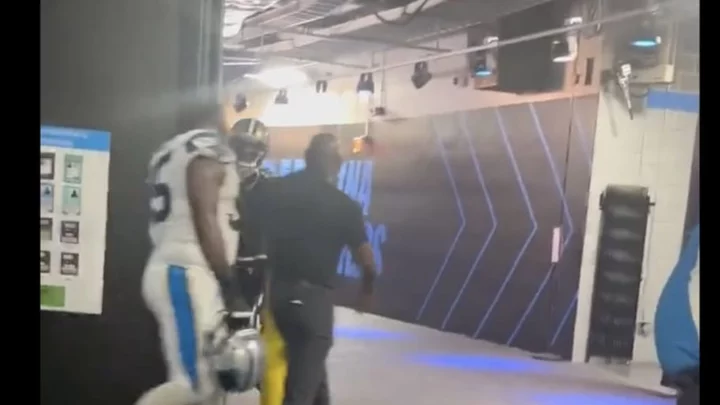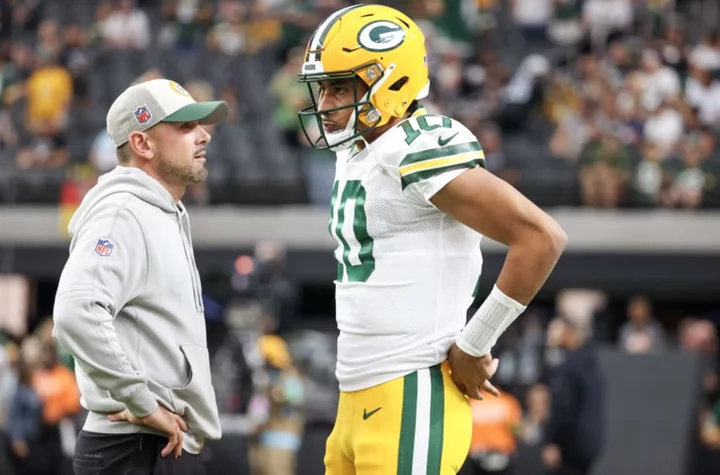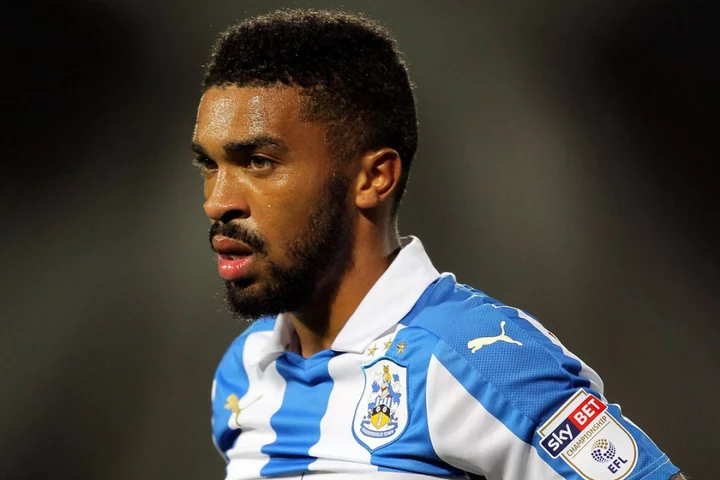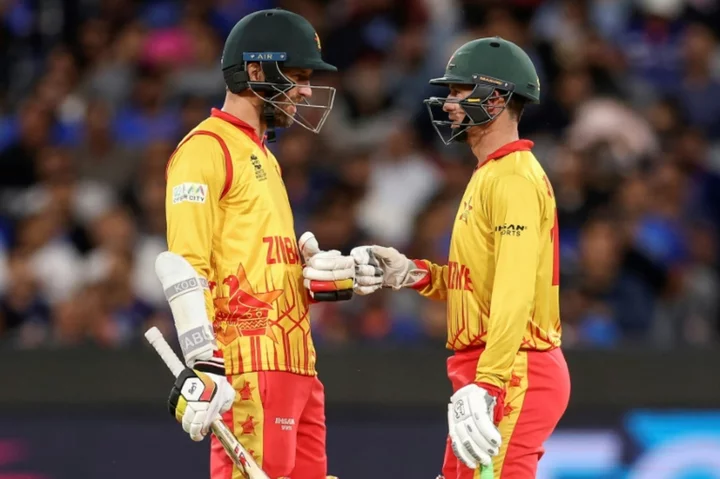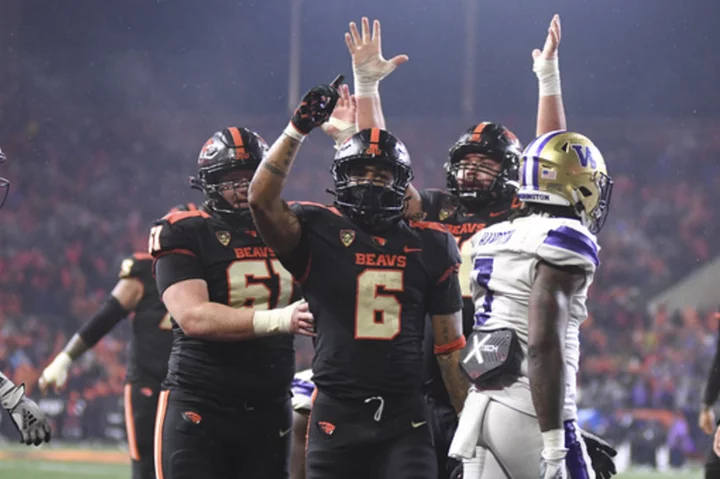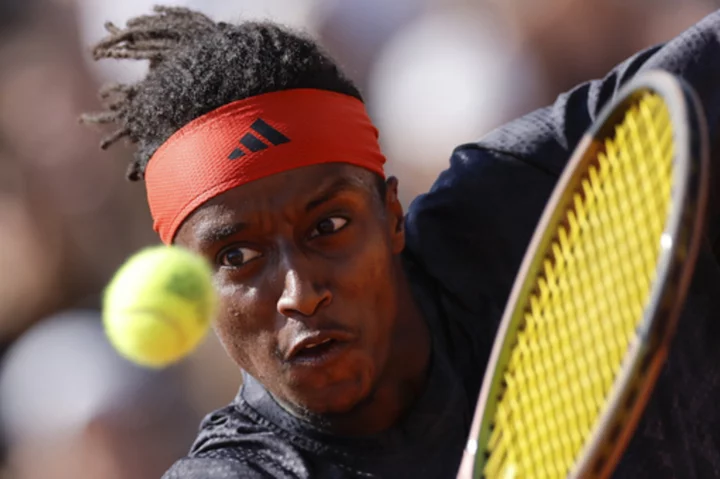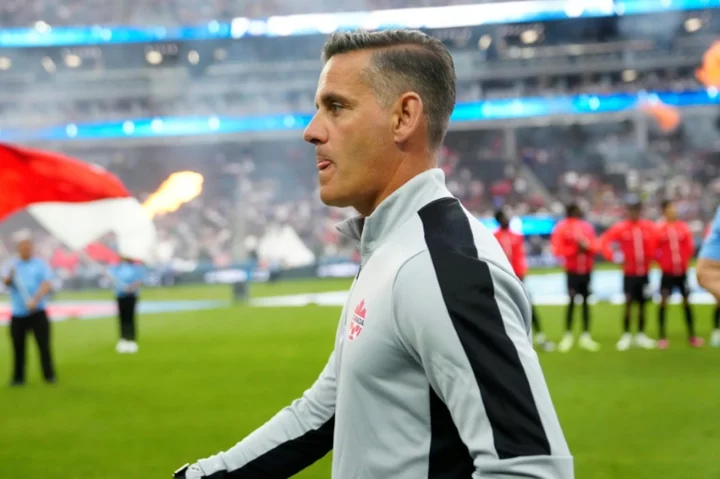Since the NBA Finals MVP award was introduced in 1969, 34 players have taken home the trophy — now named the Bill Russell NBA Finals MVP in a delightful bit of irony, considering the man with the most rings in NBA history never won the award. Twelve players have multiple awards, led by Michael Jordan's six and followed by LeBron James with four.
The award list reads like a "Who's Who in NBA History" collection. Of the 34 winners, 25 are in the Basketball Hall of Fame and six more players, all still active, are likely to join them.
Those are the parameters to consider when deciding which players are the worst to win the honor. The general rule is that the best player on the championship team gets the trophy. Jordan, James and most of the other players among the winners fit this standard. But there are always outliers.
This is not like Major League Baseball's World Series MVP honor, however. There are no Steve Pearce equivalents. Pierce, a career reserve who played for seven teams in 13 seasons, won the World Series MVP for the Red Sox in 2018 and was out of baseball a little more than a year later.
The NFL's Super Bowl Most Valuable Player list also has its share of legends of the game and guys who caught lighting in a bottle on one very opportune day. Players such as Dallas Cowboys cornerback Larry Brown, Green Bay Packers kick returner Desmond Howard and Seattle Seahawks linebacker Malcolm Smith spring to mind when looking at their overall impact during their NFL careers.
In the 55-year history of the NBA Finals MVP, only one player won the award without also capturing the Larry O'Brien Trophy (or its earlier equivalent, the Brown Trophy; the trophy was renamed for the former NBA commissioner in 1984). Jerry West of the Los Angeles Lakers won the 1969 NBA Finals MVP despite losing in seven games to the Russell-led Boston Celtics.
Besides Jordan and James, Magic Johnson, Shaquille O'Neal and Tim Duncan are three-time winners. Seven players raised the trophy twice, with Willis Reed the first to do so after winning the award in 1970 and 1973. The other two-time honoreed include Kareem Abdul-Jabbar (14 years apart in 1971 and 1985), Larry Bird, Hakeem Olajuwon, Kobe Bryant, Kevin Durant and Kawhi Leonard.
The NBA Finals MVP has never been won by a random guy. But there are three players who stand out from the rest of the winners by having careers that didn't stand out quite as much.
3. Cedric Maxwell, 1981 Boston Celtics
Cedric Maxwell had a very good NBA Finals for the Boston Celtics in 1981, when they beat the 40-42 Houston Rockets in six games in a series more well known as Larry Bird's first championship.
Maxwell averaged 17.7 points and 9,5 rebounds in the series, also blocking six shots and shooting 56.8% from the floor. But he was Boston's leading scorer in the series, as Bird was limited to just 15.3 points a night on 41.9% shooting by a Houston defense that focused on limiting his impact.
But Maxwell is the only NBA Finals MVP to never made an All-Star Game, an All-Defensive Team or earn All-NBA honors.
Nicknamed Cornbread, Maxwell came out of Kinston (North Carolina) High School to a fledgling program at Charlotte (then known as UNC Charlotte). As a junior, he was named Most Valuable Player of the NIT after leading the 49ers to the championship game, where they lost to Kentucky. The following year, Maxwell's Charlotte team upset Michigan in the Mideast Regional Final before losing to eventual national champion Marquette on a last-second dunk by Jerome Whitehead.
The 12th overall pick by the Celtics in 1977, Maxwell was a deceptively powerful inside scorer and twice led the NBA in field-goal percentage, seldom shooting anywhere but deep in the paint.
After eight seasons in Boston, Maxwell was traded to the Los Angeles Clippers in the deal that brought former NBA Finals MVP Bill Walton to the Celtics and finished out his career with the Rockets. In 11 seasons, he averaged 12.5 points, 6.3 rebounds and 2.2 assists in 835 games.
2. Jo Jo White, 1976 Boston Celtics
Jo Jo White put up an impressive resumé in his 12 NBA seasons, earning two All-NBA selections and going to seven straight All-Star Games from 1971-77. Inducted into the Hall of Fame in 2015, White was often overshadowed on the 1970s Celtics by John Havlicek and Dave Cowens.
The point guard for a pair of championship clubs in Boston, White was a volume shooter who topped six assists per game just twice in his career. During his All-Star run, White averaged 19.8 points and 5.5 assists a night on 44.3% shooting on 19.2 shots a game. He was also something of an iron man, even for that era, averaging 39.6 minutes a game over that seven-year span.
In the 1976 Finals against the upstart Phoenix Suns, who had knocked off the defending champion Golden State Warriors in the Western Conference Finals, White led the Celtics with 21.7 points and 5.8 assists in the six-game series. It was a grueling battle, though, with Boston swinging the series its way with a triple-overtime win in Game 5 when seldom-used reserve Glenn McDonald scored six points late in the third OT to push the Celtics to a 128-126 victory.
White had 33 points in that game — dubbed "The Greatest Game Ever Played" — while playing 60 minutes.
In Janiuary 1979, White was traded to the Warriors for Golden State's first-round pick in the 1979 draft — which was traded two weeks later to the New York Knicks for 20 games of Bob McAdoo. White finished his career with the Kansas City Kings in 1980-81 and averaged 17.2 points, 4.9 assists and 4.0 rebounds over 837 career games.
1. Andre Iguodala, 2015 Golden State Warriors
Andre Iguodala was the first — and still ony — NBA Finals MVP to not start every game of the series. When when Iguodala replaced Andrew Bogut in the starting lineup for Game 4 with the Golden State Warriors trailing in the series 2-1, it flipped a switch for the Warriors, who won the next three games to claim their first title in 40 years.
For the series, Iguodala put up 16.3 points, 5.8 rebounds, 4.0 assists and 1.3 steals while shooting .521/.400/.357. But in his three starts, those numbers were 20.3 points, 7.0 rebounds, 4.0 assists and 2.0 steals and he was 9-of-22 (40.9%) from outside the arc.
His biggest impact was slowing down Cleveland Cavaliers superstar LeBron James. In Game 4 at Cleveland, Iguodala harassed James into a 7-of-22 night and held him to 20 points, his lowest output of the series. James rebounded to score 40 points in Game 5 and 32 in Game 6 but needed 67 shots to do it.
Iguodala was part of all four Golden State titles since 2015, returning in 2021 after a stint on the Memphis Grizzies roster before actually playing for the Miami Heat for parts of two seasons. The 39-year-old has not officially retired, but new general manager Mike Dunleavy Jr. told NBC Sports Bay Area in August it was unlikely the 19-year veteran would be back with the Warriors in 2023-24.
Iguodala was a two-time All-Defensive selection and played in the 2012 All-Star Game. He had four seasons of averaging more than 17 points a game for the Philadelphia 76ers from 2006-10. He spent eight years in Philly and a single season with the Denver Nuggets before going to the Warriors for six years. After his stint with Miami, he logged two more seasons in the Bay Area.
For his career, he has averaged 11.3 points, 4.9 rebounds and 4.2 assists, stats that are admittedly weighted down by limited playing time and changing roles over the second half of his career. But playing much of his career in the pace-and-space era, it's worth noting Iggy is a 33% career shooter from 3 and had one of the best stretches of his career coincide with the 2015 NBA Finals.
Of the seven NBA Finals MVPs still active, Iguodala's Hall of Fame case is by far the weakest. He has longevity, but not enough of the accolades and statistical accomplishments to be considered more than a one-off Hall candidate.
But being the worst NBA Finals MVP is better than being the best at a lot of things.

